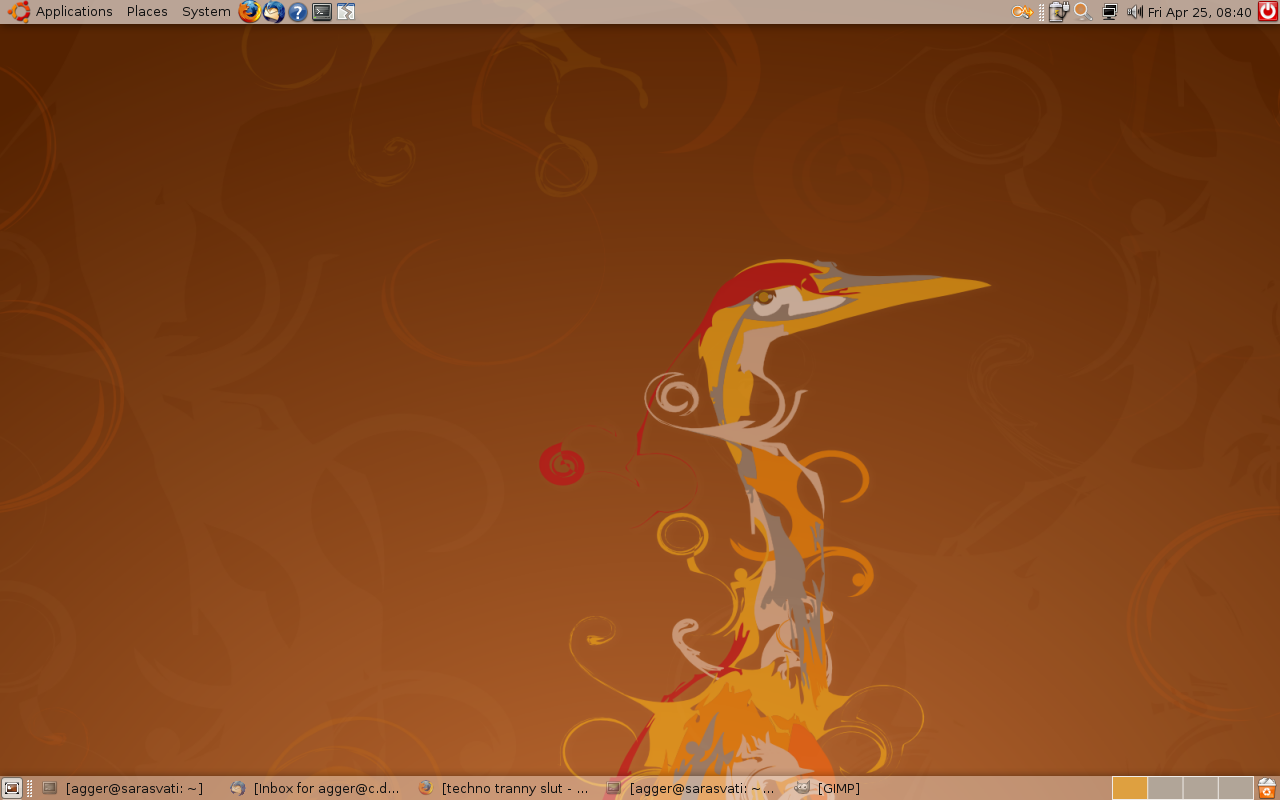Linux i april: Ubuntu 8.04 'Hardy Heron'

Den tidligere omtalte nyeste version af Ubuntu er ude nu og kan hentes her - som omtalt findes systemet nu med Windows-installer, og hvis det er den vej, man ønsker at gå, kan man slå et slag forbi Wubis hjemmeside for at hente den.
Mere baggrund om Ubuntu-systemets mål - som f.eks. til forskel fra Windows - finder man bl.a. på Ubuntus "filosofi-side":
Nuff talkin' - go get it, gerne som Windows-installation hvis du ønsker en uforpligtende prøvekørsel, før du kaster dig helt ud i det.Our Philosophy
Our work is driven by a philosophy on software freedom that aims to spread and bring the benefits of software to all parts of the world. At the core of the Ubuntu Philosophy are these core philosophical ideals:
- Every computer user should have the freedom to download, run, copy, distribute, study, share, change and improve their software for any purpose, without paying licensing fees.
- Every computer user should be able to use their software in the language of their choice.
- Every computer user should be given every opportunity to use software, even if they work under a disability.
Our philosophy is reflected in the software we produce and included in our distribution. As a result, the licensing terms of the software we distribute are measured against our philosophy, using the Ubuntu License Policy.
When you install Ubuntu almost all of the software installed already meets these ideals, and we are working to ensure that every single piece of software you need is available under a license that gives you those freedoms.
Free software
For Ubuntu, the 'free' in 'free software' is used primarily in reference to freedom, and not to price - although we are committed to not charging for Ubuntu. The most important thing about Ubuntu is that it confers rights of software freedom on the people who install and use it. It is these freedoms that enable the Ubuntu community to grow, continue to share its collective experience and expertise to improve Ubuntu and make it suitable for use in new countries and new industries.
Quoting the Free Software Foundation's 'What is Free Software', the freedoms at the core of free software are defined as:
- The freedom to run the programme, for any purpose.
- The freedom to study how the programme works and adapt it to your needs.
- The freedom to redistribute copies so you can help others.
- The freedom to improve the programme and release your improvements to the public, so that everyone benefits.
Open source
Open source is a term coined in 1998 to remove the ambiguity in the English word 'free'. The Open Source Initiative described open source software in the Open Source Definition. Open source continues to enjoy growing success and wide recognition.Ubuntu is happy to call itself open source. While some refer to free and open source as competing movements with different ends, we do not see free and open source software as either distinct or incompatible. Ubuntu proudly includes members who identify with both the free software and open source camps, and many who identify with both.
